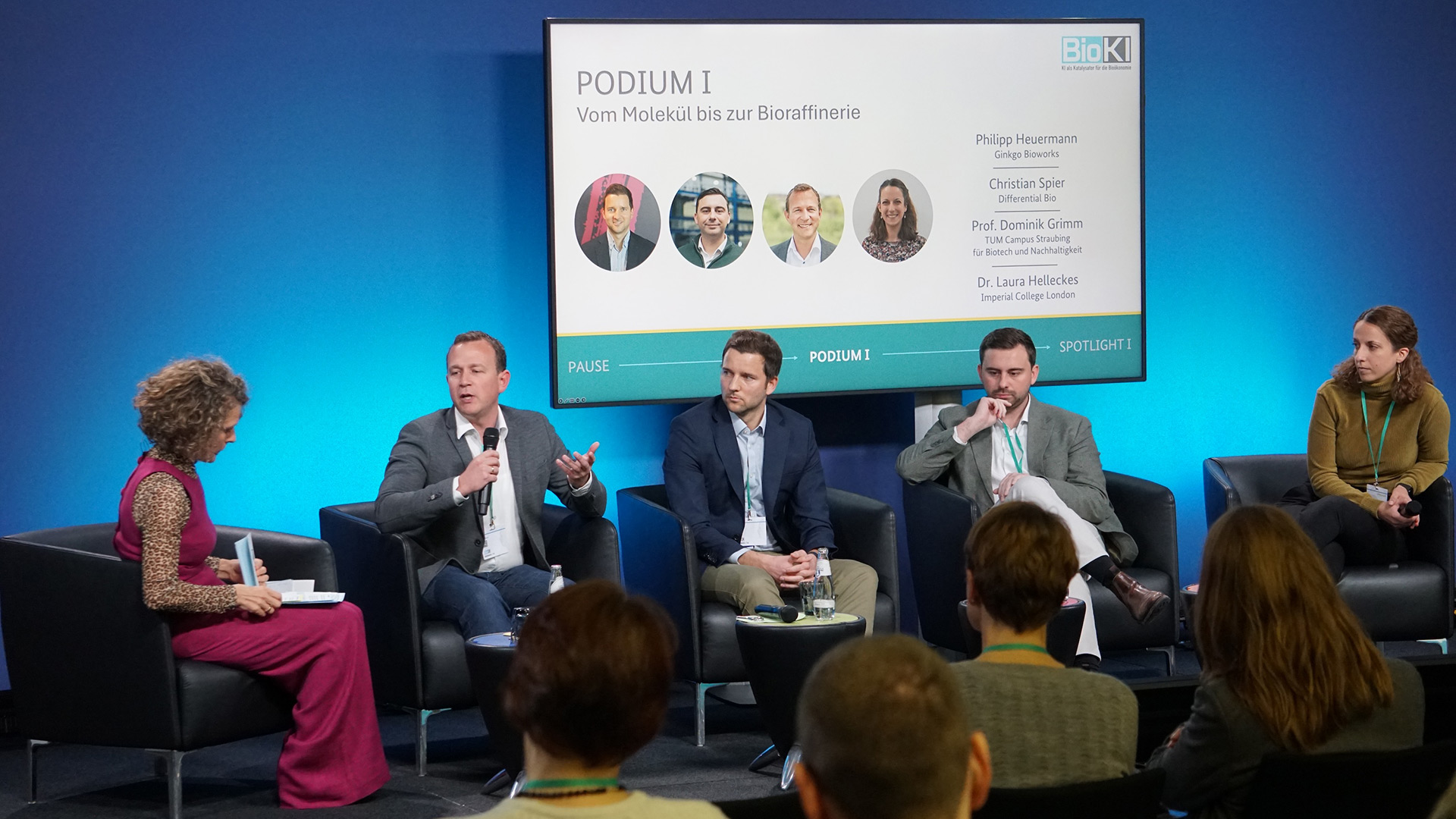Welcome to the Professorship of Bioinformatics at TUM Campus Straubing for Biotechnology and Sustainability
The GrimmLab unites bioinformatics and machine learning to advance data-driven innovation in the bioeconomy. We develop cutting-edge AI and statistical methods to understand how complex biological systems function and how their biochemical properties can be modelled, analysed, and optimised for sustainable applications.
Our research focuses on identifying genotype–phenotype relationships and extracting meaningful phenotypic traits from imaging and omics data, driving progress in genetics, precision medicine, and sustainable agriculture.
An emerging focus of the lab is the development of AI systems capable of learning and reasoning about biology and chemistry without prior domain knowledge, enabling autonomous scientific discovery and supporting the transition to a circular, sustainable bioeconomy.
News
Weeds in Focus: New Video Feature with TUMCS Involvement: Detecting Weeds with Drones
The research and innovation project “Development and Evaluation of Weed Application Maps for the Use of Robots in Mechanical Weed Control” (EWIS2) investigates new approaches to digitalization and artificial intelligence (AI) in agriculture. The aim…
TUM knowledge that grows: Green ideas for the Christmas season
In keeping with the Christmas season, Dr. Claudia Martin and doctoral student Josef Eiglsperger, both from TUM (Technical University of Munich, Straubing Campus), visited the Anton Bruckner Gymnasium in Straubing and brought gifts for the NawaRo…
Prof. Grimm discusses at the BioKI Conference in Berlin: How AI is Accelerating the Biological Revolution
Artificial Intelligence (AI) is rapidly gaining importance in the bioeconomy and is transforming both research and industrial applications. How AI can accelerate future biotechnological processes and open entirely new possibilities in molecule…

